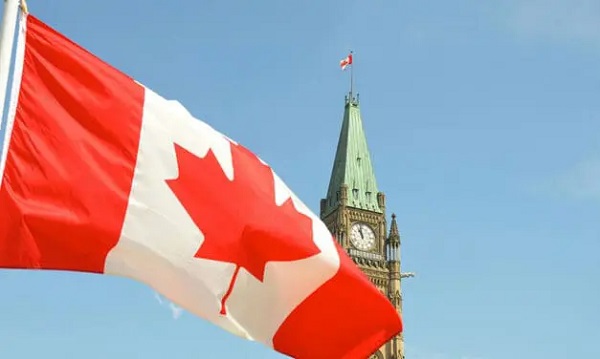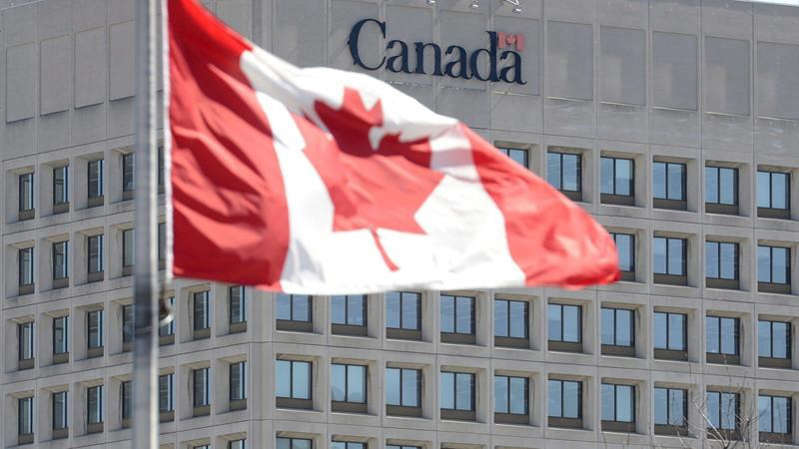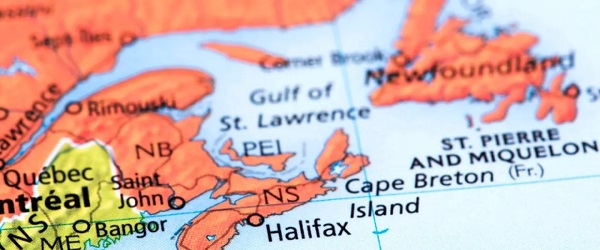National
Carney’s leadership style will make or break Canada’s future
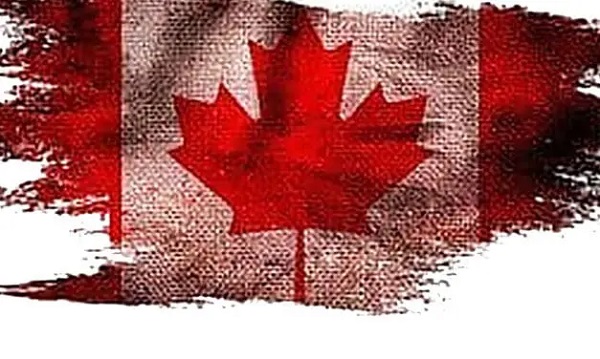
This article supplied by Troy Media.
 By Faith Wood
By Faith Wood
Canada is watching: Will he rebuild trust with premiers or revert to his predecessor’s unilateral leadership style?
Provincial premiers aren’t interested in empty gestures. While Prime Minister Mark Carney began his term amid high expectations, premiers across Canada are watching with measured skepticism. They’ve heard promises of collaboration before, only to see Ottawa centralize control.
This is a test of trust—one that won’t be passed with empty slogans or staged photo ops. Trust begins with openness, not authority. It’s built through leadership that makes room for others and treats people like equals and not problems. If Carney wants to heal a fractured nation, he must understand that people don’t follow power—they follow leaders who show up and listen
I recently facilitated a leadership retreat where the focus wasn’t policy or protocol. It was something more personal: What does it feel like to be led well? Again and again, one word came up: welcomed. People remembered leaders who made space, who adjusted the tone, who listened without interrupting.
Leaders who behaved not like commanders, but like respectful peers. This isn’t sentimental fluff. It’s a governing principle.
A good leader does more than offer kind words. They anticipate needs, notice discomfort and encourage honest participation. And most importantly, they do it before trust is earned. Openness comes first, and trust follows. Now imagine applying that to politics.
Premiers are meeting Carney with different histories and deep ideological divides. Some carry grievances, others cautious hope. But all are watching closely: Can Carney build the trust that premiers and Canadians demand? Trust doesn’t begin with a handshake. It starts with how the room is prepared: with tone, transparency and how feedback is received. Not in lofty speeches, but in real, reciprocal dialogue.
We’ve seen what the opposite looks like: top-down decisions made without consultation, provincial concerns dismissed and policies imposed with little regard for local realities. That style of leadership may deliver headlines, but it erodes trust.
So the question isn’t just about leadership style. It’s about survival. Can Carney create a climate that keeps the country working together?
Let’s stop with the clichés about “setting the tone from the top.” Start making room for others.
Are the right voices invited?
Are concerns met with curiosity, not defensiveness?
Is anyone actually listening?
And let’s be clear: making space for others doesn’t mean appeasement. It’s not weakness. It’s strength—authentic leadership requires discipline, humility and the courage to share control.
This isn’t just for Ottawa. Whether you’re managing a business, running a province or leading a family, the principle holds: people engage when they know their voice matters. Real leadership isn’t about control—it’s about creating space for others to contribute meaningfully.
That’s what fosters collaboration. That’s what earns long-term credibility. And that’s what lays the groundwork for the hard, nation-shaping conversations ahead.
If Carney is serious about national unity, he needs to stop trying to control the room and start creating space for others by:
- Showing up early.
- Listening.
- Sharing the floor.
Because in today’s Canada, command-and-control leadership won’t hold. Only leaders who make space for others will keep the country together.
Faith Wood is a professional speaker, author, and certified professional behaviour analyst. Before her career in speaking and writing, she served in law enforcement, which gave her a unique perspective on human behaviour and motivations. Faith is also known for her work as a novelist, with a focus on thrillers and suspense. Her background in law enforcement and understanding of human behaviour often play a significant role in her writing’
Troy Media empowers Canadian community news outlets by providing independent, insightful analysis and commentary. Our mission is to support local media in helping Canadians stay informed and engaged by delivering reliable content that strengthens community connections and deepens understanding across the country.
Business
Bank of Canada Flags Challenges Amid Absence of Federal Budget
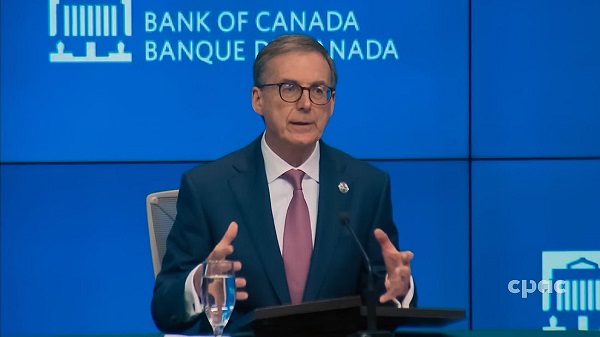

 Dan Knight
Dan Knight
Governor Tiff Macklem signals the central bank is flying blind as Mark Carney’s Liberal government withholds fiscal plans, leaving Canadians to face rising prices and economic uncertainty.
The Bank of Canada—yes, the people in charge of stabilizing your currency, protecting your savings, and guiding the economy through the storm—held a press conference. The takeaway? They have no idea what’s going on.
If you missed it, Governor Tiff Macklem stood at the podium and told Canadians, with a straight face, that the Bank is keeping interest rates unchanged at 2.75%. Now, if you’re expecting that decision to come with some clarity, a plan, maybe even a roadmap for the months ahead—don’t hold your breath.
Why? Because Macklem said the Bank’s navigating ‘unusual uncertainty’ from U.S. trade moves, and they’re too unsure to pin down a forecast. Instead, they’re waiting for more numbers to make sense of the mess.
Just pause and think about that for a second. The central bank of one of the wealthiest nations on Earth—tasked with steering the economy—is flying blind.
But don’t worry, we were told. A rate cut might come in July. Maybe. Depending on how inflation behaves. Depending on how the economy holds up. Depending on a whole list of things no one can actually predict right now. Macklem says it depends on inflation being “contained.” But look around—consumer spending is falling, housing is slowing down, and people are losing jobs in sectors tied to trade. And he knows it.
He said, “The second quarter is expected to be much weaker.” Why? Because the growth we saw earlier this year was a mirage. Canadian companies rushed to export goods before U.S. tariffs hit. That inflated Q1 GDP to 2.2%. Now the adrenaline is gone and reality is setting in.
He didn’t say we’re in trouble. But he didn’t need to. When your central banker says growth was “pulled forward” and Q2 will be “much weaker,” he’s telling you the economy is already running on fumes.
And then there’s inflation. Now, according to the headlines, inflation dropped to 1.7% in April. Sounds good, right? Until you look at why. The reason inflation dropped is because the federal government eliminated the carbon tax, which temporarily lowered gas prices. That policy change alone knocked 0.6 percentage points off inflation. Not because goods got cheaper—because the tax man backed off for once.
Meanwhile, core inflation—the kind that actually matters—went up. Higher food prices, rising goods prices, supply chain costs—it’s all hitting Canadian businesses and families right now. Macklem even said it himself: “Underlying inflation could be firmer than we thought.”
So what does the Bank do when prices are rising for the wrong reasons and growth is falling for the right ones? Apparently, they wait. They gather “intel” from business owners and talk about “soft data.” That’s the technical term now: soft data.
But the real kicker—what’s actually driving a lot of this chaos—is U.S. trade policy. Tariffs are back. Yes, tariffs on Canadian steel and aluminum were doubled again. And Macklem admitted that unpredictability is the biggest threat we’re facing. He said: “The trade conflict initiated by the United States remains the biggest headwind facing the Canadian economy.”
And what has Canada done to protect itself from that risk? Absolutely nothing.
In fact, Macklem came right out and admitted it. He said Canada’s overdependence on U.S. trade has been obvious for years. Here’s the quote:
“Canada’s trade is very concentrated with the United States. Look, it’s always going to be concentrated with the United States… but that doesn’t mean we can’t diversify our trade.”
So the solution has been obvious for decades. Diversify our exports. Strengthen our own internal market. Get serious about reducing interprovincial trade barriers—yes, those still exist in this country. But none of it happened. None of it. Not under Trudeau. Not under Chrystia Freeland. And certainly not under the new “caretaker” prime minister, Mark Carney—Trudeau’s old global finance buddy.
The Deafening Silence from Ottawa: No Budget, No Plan, No Leadership
Now, let’s talk about what Tiff Macklem didn’t say—but might as well have.
At a time when Canadians are facing real economic stress—on housing, food, jobs, and savings—the Liberal government under Mark Carney has failed to table a federal budget. Let that sink in. We’re halfway through 2025, inflation is shifting, trade policy is in turmoil, and the federal government has not provided a single fiscal blueprint.
This isn’t just a minor oversight. In a presser filled with caution, hedging, and uncertainty, Macklem was asked point-blank how the lack of a spring budget is affecting the Bank’s ability to do its job. His answer? Chilling in its understatement:
“Whatever announcements come out of the government that are… concrete, clear plans with numbers on them—we will take those on board.”
But here’s the thing: there are no numbers. There are no “concrete” plans. There is no spring budget. Which means the Bank of Canada is operating without a fiscal anchor.
And that’s not a partisan jab. That’s a direct acknowledgment from the central bank governor. Monetary policy doesn’t exist in a vacuum. It relies on fiscal policy—how much Ottawa plans to spend, what kind of debt it’s taking on, whether it’s injecting or withdrawing demand from the economy. Without that information, the Bank is effectively being asked to navigate blindfolded.
Macklem was careful, as central bankers always are, but he sent a signal to anyone paying attention: the absence of fiscal clarity is a problem. In his words, it “complicates monetary policy planning.” That’s about as blunt as a central banker gets.
Yet in a moment of unintended honesty, he added this:
“To be frank, the budget is not the biggest source of uncertainty… It’s U.S. tariffs.”
Well, sure. America’s economic unpredictability is real. But what Macklem didn’t say—but we all know—is this: Canada’s lack of internal leadership is a close second. And that’s the part Ottawa doesn’t want to talk about.
And here’s the part that’s impossible to ignore, even if every outlet in this country refuses to say it: Mark Carney knows better.
He used to run central banks. That’s his entire résumé. He understands, better than anyone, that monetary policy doesn’t function in a fiscal vacuum. He knows the Bank of Canada requires a federal budget to plan ahead. He knows you can’t forecast inflation or economic activity if the federal government won’t even tell you how much it plans to spend, borrow, or tax. That’s not some fringe economic theory, that’s Monetary Policy 101.
And yet, despite knowing all of this, Carney is choosing not to deliver a budget. He’s actively keeping the Bank of Canada in the dark. Why?
Well, maybe it’s because he doesn’t want to show you the numbers. Because the numbers are bad. Because the spending is out of control. Because the debt is spiraling. Because if he puts it all on paper, if he gives us the hard data, then suddenly, the opposition can do what it’s supposed to do: hold his government to account.
And maybe, just maybe, Carney doesn’t want that. Not yet. Not so early in his reign as Trudeau’s heir. He doesn’t want the Conservative Party pulling apart his economic plan, and he certainly doesn’t want the Canadian people realizing that we are not collecting retaliatory tariffs on U.S. goods, even as the Americans hammer us again with steel and aluminum levies.
He doesn’t want you to see the imbalance. Because if you did, if the average Canadian saw how weak and passive this country has become in the face of American economic aggression, you’d be furious. You’d demand answers. You’d demand change.
But instead, its all, “elbows down.” Quietly filtered out of the official narrative. No plan, no numbers, no debate—just vague promises, half-hearted reassurances, and a press conference where your central banker admits he’s guessing.
And you, the ordinary Canadian, are stuck with the consequences. You feel it every time you go to the grocery store. Food prices are still climbing. The latest inflation data shows that even as headline numbers tick down, your groceries are getting more expensive. Your paycheque isn’t going as far. And nobody in power seems to care enough to fix it.
So here’s the truth: the system is rigged. Not in some conspiratorial way, but in the most obvious, bureaucratic, cowardly way imaginable. Those in charge know the damage they’re causing. They just don’t want to be blamed for it.
And as always, it’s the people who work, save, and pay taxes—the people who still believe in this country—who get left holding the bag.
So the next time they tell you “everything is under control,” ask yourself: whose hands are on the wheel?
Because right now, it sure doesn’t look like anyone is driving.
Good-day, Canada.
Subscribe to The Opposition with Dan Knight .
For the full experience, upgrade your subscription.
COVID-19
COVID-censured doctor says Liberals targeted him because he made government look bad
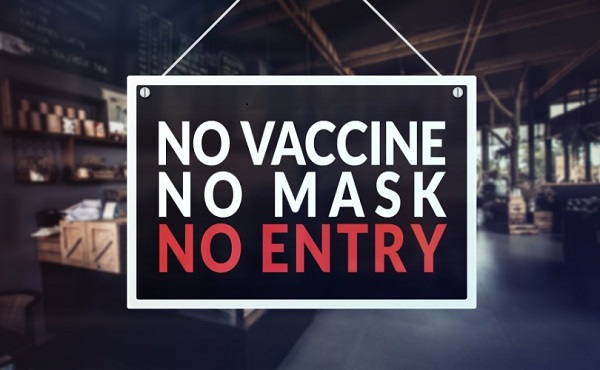
From LifeSiteNews
Conservative Party MP Dr. Matt Strauss shared with the House of Commons that a Trudeau cabinet minister told him criticism of the government got him in trouble.
A Canadian doctor critical of virus lockdowns revealed a former top Liberal cabinet Minister implied to him he was censured by his medical regulator because he had the boldness to criticize the COVID mandates imposed under the federal government of former Prime Minister Justin Trudeau.
Newly elected Conservative Party of Canada (CPC) MP Dr. Matt Strauss revealed the reasons he was targeted by his medical regulator in his first speech in Parliament on June 3.
“At Queen’s University where I taught, Jane Philpott herself, one of the only two cabinet ministers to speak truth to Justin Trudeau’s power, informed me in her dean’s office that ‘the reason the administration had to harass me was that I criticized the government,’” he said to all MPs in the House of Commons.
Strauss affirmed that Philpott’s words were a “direct quote” to him, adding, “Of course, Prime Minister Trudeau and his commissars were immune from all of this.”
“They gave luxurious contracts to their friends in academia to promote their misinformation and gave hundreds of millions of dollars to mainstream media to promote government narratives,” he noted, adding, “These three institutions – government, media and academia – have important roles in society to regulate each other.”
While working as an emergency care doctor, Strauss was critical of COVID lockdowns and mandates. In 2021, he observed that full hospitals in Canada have been the norm for decades.
For speaking out, he was the target of Queen’s University after it allegedly censored him and enacted professional reprisals against him because of his outspoken views against COVID mandates and lockdowns. Elon Musk’s X helped fund Strauss’ legal against his former employer Queen’s University after it forced him to resign.
Strauss, also in his first speech also used his time to blast COVID mandates as “full Communism.”
He noted how when he was still working as a doctor, he did “not impose additional mask mandates, vaccine mandates, capacity restrictions or contact tracing schemes as many of my colleagues in other jurisdictions did. I did not harangue patients into getting low-risk toddlers vaccinated.”
“When ordinary, everyday Canadians came here to Ottawa complaining that their Charter rights to bodily autonomy, assembly and free movement were being violated, every member of the Liberal caucus voted to trample their rights further,” he said, referring to the Freedom Convoy protests of 2022.
Philpott quit Trudeau’s cabinet in March 2019, along with former Attorney General Jody Wilson-Raybould. Both of them cited a lack of confidence in the Liberal government’s handling of the SNC-Lavalin bribery scandal.
In April 2019, Trudeau turfed Wilson-Raybould and Philpott from his caucus, meaning they were no longer part of the Liberal Party.
Many Canadian doctors who spoke out against COVID mandates and the experimental mRNA injections were censured by their medical boards.
In October 2021, Trudeau announced unprecedented COVID-19 shot mandates for all federal workers and those in the transportation sector and said the unvaccinated will no longer be able to travel by air, boat, or train, both domestically and internationally.
This policy resulted in thousands losing their jobs or being placed on leave for non-compliance.
Trudeau had disparaged unvaccinated Canadians, saying those opposing his measures were of a “small, fringe minority” who hold “unacceptable views” and do not “represent the views of Canadians who have been there for each other.”
LifeSiteNews has published an extensive amount of research on the dangers of the experimental COVID mRNA jabs that include heart damage and blood clots.
-

 Business1 day ago
Business1 day agoThis Sunday, June 8, is Tax Freedom Day, when Canadians finally start working for themselves
-

 Alberta2 days ago
Alberta2 days agoAlberta Sports Hall of Fame to Induct Class of 2025
-

 Alberta1 day ago
Alberta1 day agoPro-life activist describes how child traffickers take advantage of Alberta’s abortion lax laws
-
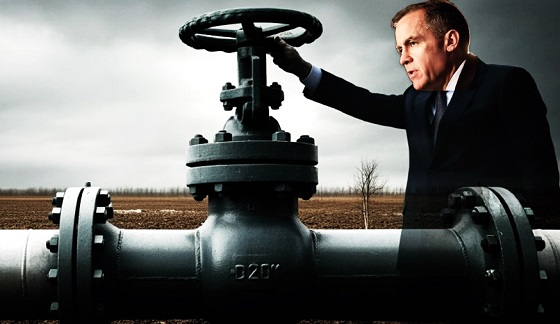
 Business1 day ago
Business1 day agoCarney’s Energy Mirage: Why the Prospects of Economic Recovery Remain Bleak
-

 Crime2 hours ago
Crime2 hours agoExclusive Analysis: Chinese Couple Smuggled ‘Agroterrorism Weapon’ Fungus into U.S., Echoing Winnipeg Lab Ebola Espionage Case
-

 Fraser Institute1 day ago
Fraser Institute1 day agoHealth-care lessons from Switzerland for a Canada ready for reform
-
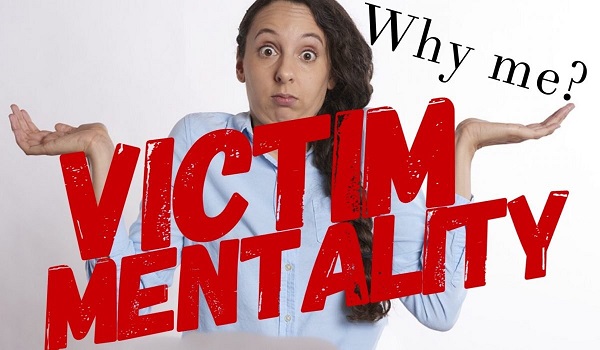
 Bruce Dowbiggin23 hours ago
Bruce Dowbiggin23 hours agoI’m A Victim, You’re A Victim, Wouldn’t You Like To Be A Victim, Too?
-

 Censorship Industrial Complex23 hours ago
Censorship Industrial Complex23 hours agoLegal warning sent to Ontario school board for suspending elected school council member

